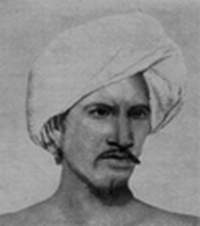11 June 1885
Dear Sir,
I acknowledge the receipt of your letter regarding the proposed conference of the (Marathi) authors and I was delighted to receive your request that I should participate in this conference. But then esteemed sir, the conferences and the books of those who refuse to think of human rights generally, who do not concede them to others and going by their behavior are unlikely to concede them in future, cannot make sense to us, they cannot concur with what we are trying to say in our books. The reason is that their ancestors, with the view to taking revenge on us, included in their pseudo-religious texts an account of how they turned us into slaves and thus gave our enslavement religious authority. Their dated and decadent texts are witness to this phenomenon. These upper-caste authors who are forever miles away from reality and who can only make ceremonial and meaningless speeches in big meetings can never understand what we the shudras and atishudras have to suffer and what calamities we have to undergo. All this is not entirely unknown to the high-caste founders of various conferences and organizations. They pretend to be modernists as long as they are in the service of the British government. The moment they retire and claim their pensions, they get into their brahmanical touch-me-not attire, become caste chauvinists, incorrigible idol worshippers and, what is worse, treat the shudras and atishudras as lowly and contemptible. If they happen to be in their touch-me-not ritual dress they would not even touch paper notes as if that were a blasphemy! How can these Arya brahmans improve the lot of this unfortunate land? Be that as it may. We shudras do not any longer wish to trust these people and their specious and dishonest stories, for they cheat us and eat off our labor. In a word, we shudras have nothing to gain by mixing with such people. We must think about our situation and how we should relate to these upper-caste people. If these leaders of men are genuinely interested in unifying all people they must address themselves to the discovery of the root of eternal love of all human beings. Let them discover it and may be formulate and publish it as a text. Otherwise to turn a blind eye to the divisions among the human beings at this hour is simply futile. Of course, they are free to do what they like. I would nevertheless be thankful if my short letter is placed before your conference for consideration. In any case accept the salute of this old man.
Your friend
Jotirao. G. Phule.
Note: The Conference of Marathi Authors was founded in 1878. Its second plenary session was organized by Justice M.G. Ranade on 24th May 1885. Ranade wrote to Phule requesting him to participate in the plenary session. Phule did not. But he sent a reply to Ranade, which was published in the 11th June issue of the journal Dnyanodaya. This is another example of how Phule always related to all problems keeping in mind what in his view was the main contradiction in contemporary society.
An interesting thing about this letter is the last sentence, which is written in a dialect which the Muslims of the western Maharashtra use in their speech: “Sadhe hoke buddheka yeh pahla salaam lev’. It sounds like Urdu or Hindustani but does not follow the syntax of Urdu and Hindustani. It is Marathi for all practical purposes. His use of this kind of language would certainly have shocked the contemporary brahmans. But Phule clearly seems to emphasize that this ‘Mussalmani’ or ‘Bagwani’ speech is as much Marathi as brahmanical speech!
Translated by G P Deshpande.
Source: Selected writings of Jotirao Phule. Edited, with annotations and introduction, by G P Despande.
The Shared Mirror celebrates Jyotiba Phule's 184th Birthday.
